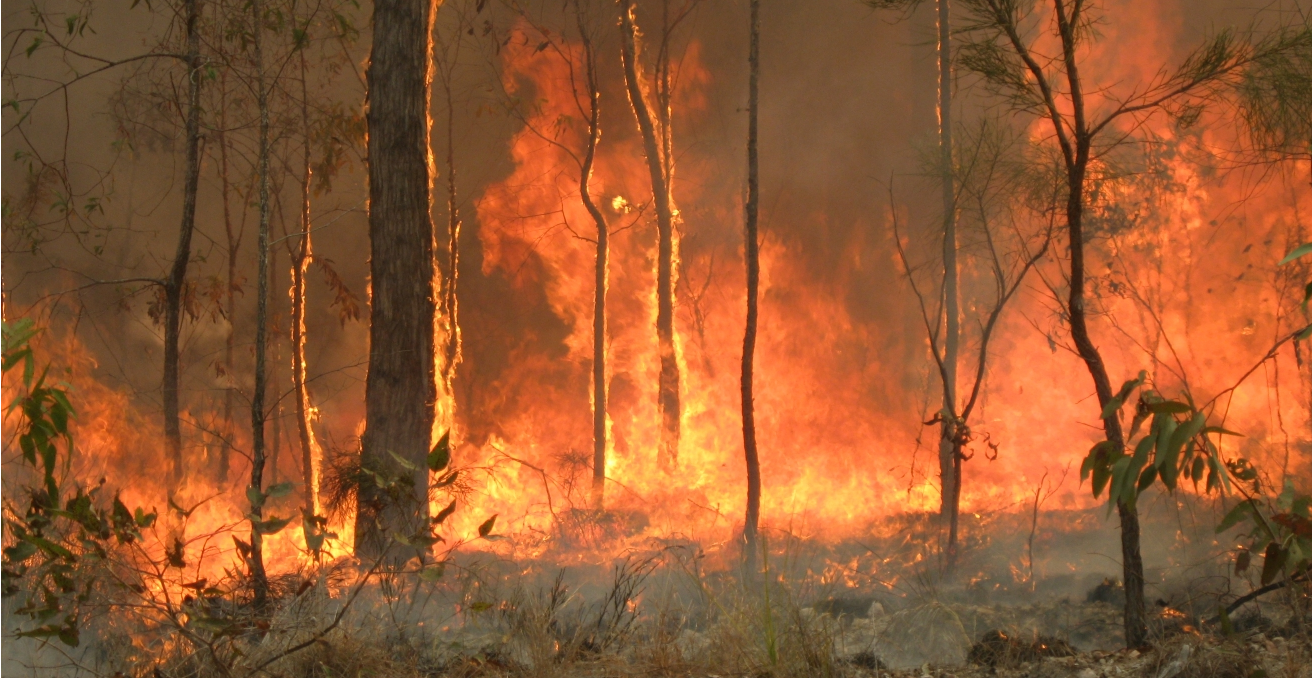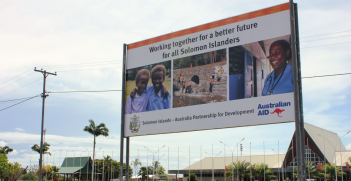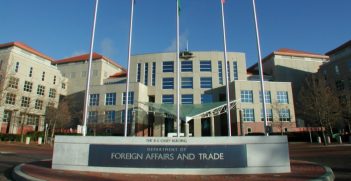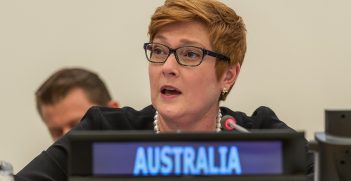Australia’s Foreign Policy in Practice (Part One)

The recent bushfires in Australia were met with an outpouring of support worldwide. This is unsurprising, given Australia’s natural beauty and its willingness to help when regional partners experience natural disasters.
We should take pride in the work DFAT is doing to lead the government’s international response to the recent bushfires. It may be a surprise that DFAT would be consumed by the overall government effort to respond to the bushfires – perhaps it is because the international aspects are not readily apparent in the middle of a national crisis.
Australia’s unique natural surrounds – as well as its reputation as one of the world’s safest destinations – have always been one of Australia’s greatest economic assets, especially when it comes to tourism and related services. In “diplo-speak,” a nation’s soft power is the (hopefully, in Australia’s case!) attractive image it projects that helps the world understand it and persuade others to align their interests and actions with it.
Unfortunately, the fires have adversely affected how some around the world see Australia – a perception that the government is determined to fix. DFAT, along with other portfolio agencies both in Australia and abroad, are monitoring how key export sectors are being affected by the fires.
Australia has launched international campaigns to mitigate the adverse impacts on its international reputation from the bushfires and to its economic interests by the Coronavirus. Within DFAT, a dedicated bushfire unit is coordinating with other agencies and overseas networks on the many offers of assistance Australia has received. The bushfire unit also seeks to ensure all parties involved are working as one, so that the government’s response is as effective and timely as possible.
DFAT has also mobilised its diplomatic network, and deployed communications specialists to priority markets overseas to make sure its message is clear: that Australia is a safe place to visit, study, trade, and invest. It’s important that DFAT play its part in this national recovery because it needs to live up to the example of the Australian communities affected by the blazes of strength, resilience, and generosity in a time of great adversity. The response of everyday Australians has been our country at its very best. It’s part of DFAT’s job to transmit that fact – and the fact that Australia is still very much on its feet.
DFAT’s role in responding to the Coronavirus and helping calibrate the government’s response is probably more intuitive. It is something Australia, and the world, is now grappling with as our understanding of the scale and impact continues to unfold. As one would expect, DFAT has devoted tremendous energy – both in terms of consular assistance to Australians in China, and now Japan, but also in terms of understanding the longer-term, economic effects of the virus. This is in addition to DFAT’s outreach to partner governments in the region and partner organisations to offer assistance and support.
Our relationships, our partnerships
Both the bushfires and Coronavirus have illustrated how fundamental the strengths of our international relationships are. The international reaction to the fires highlighted just how much genuine goodwill there is for Australia around the world – including in its own region, the Indo-Pacific. Friends and partners, near and far, have poured out their hearts for Australia, its people, and its wildlife. Messages of support have been a tremendous comfort. Practical assistance and offers of support have been gratefully received.
In all, Australia has received assistance and offers of support from 70 countries – a testament to the empathy that this country inspires in its partners. It’s been especially great to see how some of Australia’s closest development partners in the Pacific have contributed to our recovery efforts. The 80 engineers from Papua New Guinea deployed in Australia to assist rebuilding is one example. So, too, are the 54 Fijian troops undertaking recovery work down in Orbost in Victoria.
This says so much about the sheer generosity of Australia’s Pacific family. It also says a lot about the enduring nature of Australia’s relationships in the Pacific – and how important it is that Australia continues to invest in them. Australia has been there when many of its partners have experienced natural disasters, such as in Tonga in 2018 after Cyclone Gita or in Vanuatu in 2015 in the wake of Cyclone Pam. And now, as Australia recovers from the fires, its Pacific friends have been there for Australia.
Sadly, it often takes an event as devastating as a natural disaster to bring into sharp relief the strength of Australia’s partnerships. But the trust and confidence that underwrite such partnerships is not built overnight – it’s the result of a longstanding commitment to supporting the development of partner countries, whether by reducing poverty, responding to humanitarian disasters, promoting effective governance, or addressing non-traditional security challenges. It is also the result of the underlying knowledge that in an interdependent region, Australia is made stronger, safer, and more prosperous by its neighbours sharing the same characteristics.
Of course, how Australia engages and how Australia approaches its partnerships in the region matters immensely. And this comes down to values. A commitment to gender equality and inclusiveness is central to how Australia engages all of its partners. So too is Australia’s steadfast commitment to universal human rights and an international system where the sovereign equality of nations, international law, and rules-based order are the organising principles. Approaching development partnerships with this integrated view of regional security and prosperity, and with these values, Australia is well-placed to be a leading partner for development. To maintain this leading role, however, Australia must be responsive to how the region and development needs are changing.
Clare Walsh is the deputy secretary for the Global Cooperation, Development and Partnerships Group with Australia’s Department of Foreign Affairs and Trade. Ms Walsh has a wide range of international and domestic policy experience from her 20 years working in the Australian Public Service. Prior to her current role, she was the deputy head of mission at the Australian Embassy in Japan.
This is part one of a two-part adaptation of the speech Ms Walsh presented to the ACT Branch on 20 February 2020.





